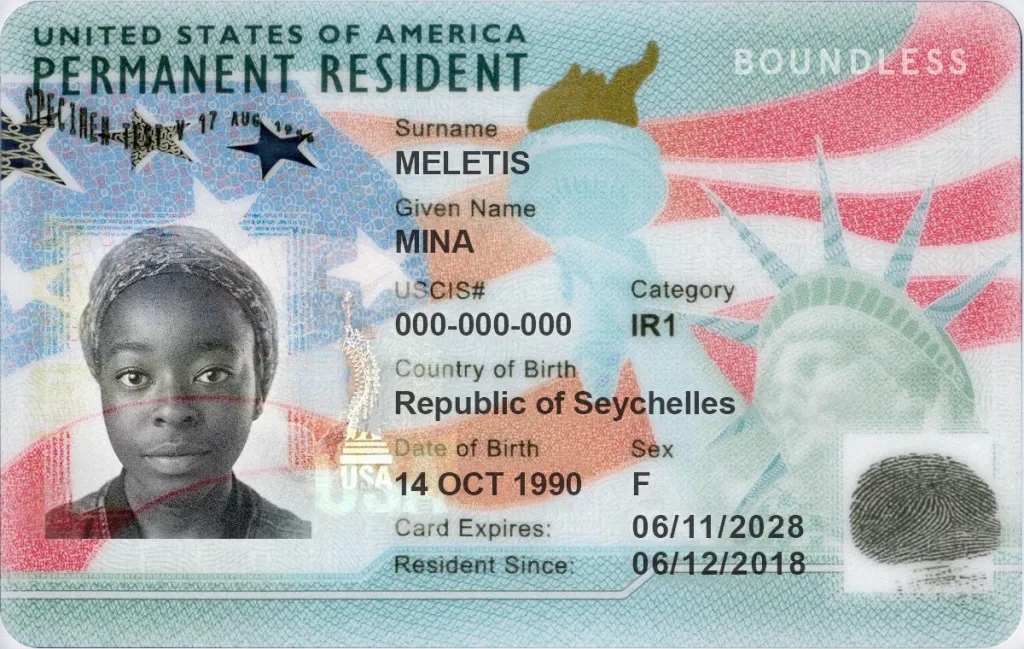
Securing a U.S. Green Card opens the door to a new chapter in one’s life, and there’s no one-size-fits-all approach to snagging that spot. The path people take to get a U.S. green card can be said to be diverse, each with its own set of conditions and implications.
When it comes to the majority of new permanent residents in the U.S., it is like a big family reunion, and it’s not just about saying “I do.” There are plenty of other options for those looking to plant their roots without the wedding bells. So how to get a green card in the USA without marriage? For career-minded dreamers, there’s the whole employment route, from high-demand skills to making a business move with the EB-5 Investor Program.
In this article, we will walk you through each option to find out which may be the path that holds the key to your American dream. From family sponsorship to employment-based opportunities, they have paved the way for people to make the United States their new home.
Family Sponsorship
If you have a family member who’s a U.S. citizen or a Green Card holder, they can sponsor you for a Green Card. This process is known as family sponsorship, and it allows certain relatives to help their family members immigrate to the United States. Immediate relatives of U.S. citizens, such as spouses, unmarried children under 21, and parents of U.S. citizens who are over 21, have the highest priority and don’t have to wait for a visa to become available.
For those who don’t fall into the immediate relative category, there are also family preference categories. These include unmarried sons and daughters over 21 U.S. citizens, spouses and unmarried children of Green Card holders, married children of U.S. citizens, and siblings of adult U.S. citizens. The availability of visas in these categories may be limited, leading to wait times that vary depending on the relationship and the country of origin. Family sponsorship can be a valuable path to obtaining a Green Card for those who’ve eligible relatives willing to sponsor them.
Employment-Based Green Card
This route is available for anyone who has a valid job offer from a U.S. employer. The Employment-Based Green Card allows you to live and work permanently in the United States.
To begin the process, your employer must typically file a petition on your behalf. There are different categories or ‘preferences’ for Employment-Based Green Cards, each with its specific requirements. These preferences range from priority workers with extraordinary abilities to skilled workers and professionals, as well as certain special immigrants.
Once the petition is approved, you may then apply for your Employment-Based Green Card through adjustment of status if you’re already in the U.S., or through consular processing if you’re abroad.
Diversity Visa Lottery
To participate in the Diversity Visa Lottery, you must meet specific eligibility requirements set by the U.S. Department of State. This lottery aims to diversify the immigrant population in the United States by granting up to 55,000 visas annually to people from countries with historically low rates of immigration to the U.S.
To qualify for the Diversity Visa Lottery:
- You need to be a native of a qualifying country.
- You must have at least a high school education or two years of work experience in a qualifying occupation.
- Submit an entry during the specified registration period, usually in the fall of each year, through the official Diversity Visa Lottery website.
Winning the Diversity Visa Lottery doesn’t guarantee a green card; it simply allows you to apply for a green card. If selected, you’ll proceed with further interviews and paperwork to determine your eligibility for permanent residency in the United States.
Investment or Entrepreneur Visa
Considering starting a business in the U.S.? An Investment or Entrepreneur Visa might be the path to obtaining a U.S. Green Card. This visa category is designed for people who are willing to invest a substantial amount of capital in a new or existing U.S. business. With this, you can contribute to the growth of the U.S. economy while also securing legal permanent residency for yourself and your immediate family.
To qualify for an Investment or Entrepreneur Visa, you typically need to invest a minimum amount of capital in a commercial enterprise in the U.S. The investment requirements vary depending on the specific visa program you apply for, such as the EB-5 Immigrant Investor Program or the E-2 Treaty Investor Visa.
Apart from making a significant investment, you must also demonstrate that your business venture will create job opportunities for U.S. workers.
Special Immigrant Categories
The diverse Special Immigrant Categories offer unique pathways to obtaining a U.S. Green Card. These categories cater to people with specific circumstances or backgrounds that make them eligible for permanent residency.
The Special Immigrant Juvenile Status: It is designed for foreign children in the U.S. who’ve faced abuse, abandonment, or neglect.
The Special Immigrant Religious Worker Program: This is aimed at religious workers who’ve been working in the U.S. for a designated period. This category allows religious workers to pursue permanent residency in recognition of their service in religious communities.
The Special Immigrant Physician Program: This targets foreign medical professionals willing to work in underserved areas in the U.S. By providing essential healthcare services, these physicians can secure a Green Card through this category.
Conclusion
There are several ways to obtain a U.S. green card, including through family sponsorship, employment, the diversity visa lottery, investment or entrepreneurship, and special immigrant categories. Each option has its requirements and processes, so it’s important to research and determine the best route for your situation. With determination and the right resources, you can secure a path to obtaining your green card and achieving your goal of living and working in the United States.